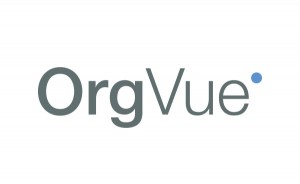T3 – Talent Tech Tuesday – is a weekly series here at The Project to educate and inform everyone who stops by on a daily/weekly basis on some great recruiting and sourcing technologies that are on the market. None of the companies who I highlight are paying me for this promotion. There are so many really cool things going on in the space and I wanted to educate myself and share what I find. If you want to be on T3 – send me a note.
Today on T3 I get the pleasure of reviewing OrgVue a London based tech firm and management consultancy, that built one of the most awesome HR specific Business Intelligence tools I’ve ever seen! OrgVue is an integrated software platform bringing Org Design, HR Analytics and W orkforce Planning together in a single product. Gartner named them the ‘Cool’ product of 2014, and ‘Cool’ is an understatement!
orkforce Planning together in a single product. Gartner named them the ‘Cool’ product of 2014, and ‘Cool’ is an understatement!
Think about this way, you have many systems in your organization that have employee data, and even in a suite environment, rarely does everything come together nicely. It’s messy. OrgVue takes all this messy data and brings back to you clean answers. One thing every HR shop gets tasked to do is developing Org Charts. OrgVue takes Org Charts into the next millenium. It does, intuitively, what we always wished Org Charts could do. Click on a person and gives you all their data, performance, roles they’ve been, etc.
From a workforce planning perspective it does real-time workforce modeling. Lose your head of design? What impact will that have downstream? OrgVue can show you in a few clicks. Want to re-org? OrgVue can show you cost savings of the new org before you even make the move through it’s modeling tool. OrgVue takes the HR Business Partner model to a whole new level.
5 Things I Really Like About OrgVue:
1. OrgVue gives an organization one source of true data maintained through seamless integration of multiple systems and locations. Want to compare hiring analytics between Michigan and Texas, just a few clicks. North America and Europe, a few more clicks. It’s crazy powerful!
2. OrgVue constantly is intaking and cleaning data in real-time. This means the charts and reports you pass along to decision makers are accurate and not dated.
3. So many of our executives are visual learners. OrgVue understands this and brings your HR data to life visually. Also, executives are known for asking for ‘one-more-thing’, “Can I just see this data sliced a bit differently”. It’s the vain of HR pros around the world. Not with OrgVue.
4. The organizational modeling and scenario planning tool is unlike anything I’ve seen from any other vendor, ever. In fact, I’ll say that OrgVue probably could take the jobs of some highly paid consultants that you pay to do this now!
5. Everything you create and see in OrgVue is turned easily with a click into Excel, PowerPoint and PDFs. Why fight it?! Big orgs want their paper, spreadsheets and slides, so give it to them, when they need it.
I say this too often, but I was completely blown away by this product. I would invest in this company, that’s how blown away I was!
But, let me be clear, OrgVue is for a sophisticated HR buyer. This is a big shop, Fortune 1000 type product. Regardless, I would encourage every HR executive you must demo this product. Even if you aren’t in the market, treat this a personal development, the OrgVue folks will teach you some stuff on this demo. You will never look at your data the same way again!
